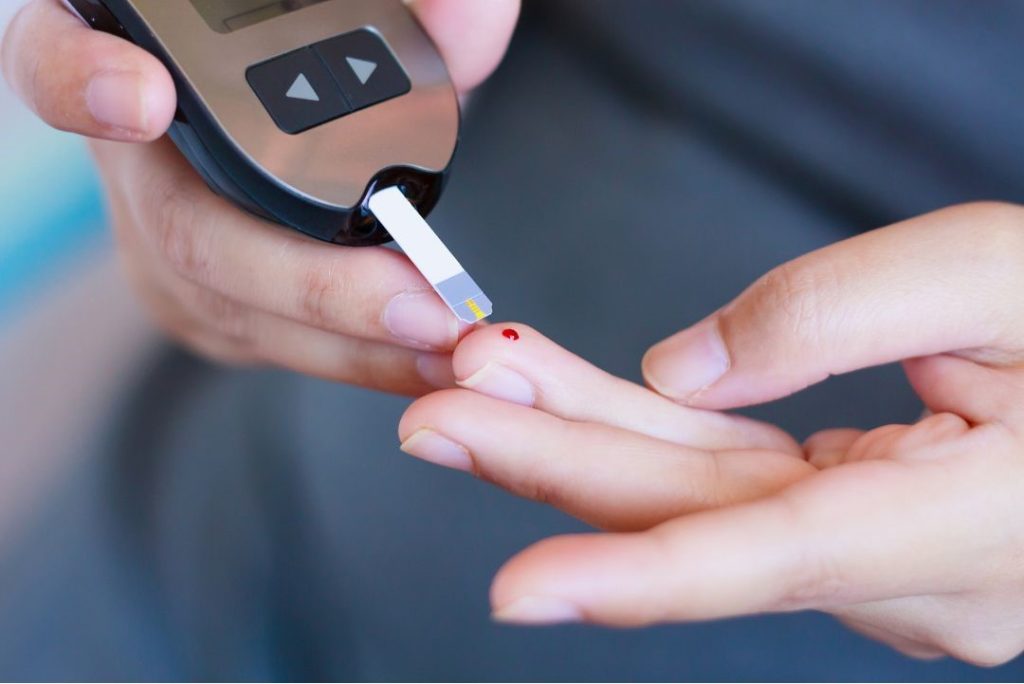New data presented by a team of researchers from the University of the West Indies (UWI) and Florida International University (FIU) shows that a new technique
called Enhanced Intensive Lifestyle Intervention (EILI) is four times more effective at keeping patients’ blood sugar low, helping patients lose weight and belly fat, reducing their A1C concentrations and is effective at sending diabetes into remission in a majority of patients.
In addition, the data shows that EILI can effectively get nearly 90 percent of patients off medication within 3 – 6 months, improve their quality of life and improve worker productivity much faster than metformin or applying exercise alone.
The data, which was presented on Tuesday at the annual Mixed Methods Research Conference hosted by UWI’s Faculty of Education (St Augustine), showed that EILI outperformed metformin in five key areas including A1C reduction, BMI reduction, abdomen (belly fat) reduction, improved worker productivity and
nearly 90 percent of patients eliminated their dependence on medication entirely.
The study conducted between June 2021 and June 2022 by a team of health researchers led by Peter Neptune (UWI), followed 100 patients who completed the 3 – 6 month EILI Program at the National Wellness Centers, a Port of Spain based NGO that focuses on delivering care for diabetes and other related lifestyle diseases.
“The initial results are very encouraging for the Caribbean community which has a large population of diabetic patients,” said lead researcher, Peter Neptune. The final paper will be peered reviewed and published in the UWI’s Mixed Methods Academic Research Journal in January 2024. The data on the EILI Program in the Caribbean was compared to two existing comparative research papers on patients using a popular diabetes drug called metformin glycinate. The metformin-based studies were double blind research projects that compared the effectiveness of metformin vs a placebo. The studies were conducted in the United Kingdom and Mexico in 1997 and 2012 respectively.
The Caribbean study compared the results of these two studies with the results of the EILI Program implemented in Trinidad and Tobago.
The UK and Mexican studies were fairly consistent with their results, even though the UK study showed a higher reduction in A1C concentrations as their sample included sicker patients with initially higher A1C scores. The UK study followed 60 patients over 3 – 6 months, while the Mexican study followed 20 patients
over a 3 – 6 month period as well. The Caribbean study followed 100 participants.
The Caribbean EILI study included an intensive review of the patient’s lifestyle. Before starting, patients completed a questionnaire about their meals and exercise regimes. A review of their medication and diet was also conducted. The Program then developed a diet plan and a daily schedule for the patient which also included access to psychological support and group therapy if needed. Only patients who completed the EILI Program were considered for the study.
The UK and Mexican studies provided support for patients by providing access to dietitians using the published (ADA) American Diabetes Association Dietary Guidelines. The patients were equally and randomly chosen for each study and one group was given a placebo, while the other group was given metformin glycinate.
The UK/Mexican studies showed negligible change in body weight among patients, while the Caribbean EILI program recorded an average weight loss of 6kg (15lbs) over three months of the program.
The Mexican/UK studies showed no change in patient’s BMI while the Caribbean study showed 25 basis points reduction in BMI. A1C concentrations declined by only 5 basis points in the UK/Mexican studies using metformin, while the Caribbean study averaged a 15-basis points reduction without the use of medication.
The Mexican/UK studies average a 1cm (a half inch) loss in belly measurements while the Caribbean study averaged a 10cm (5.0inches) loss. The most striking result however is that 88 percent of patients were able to come off medication as their blood sugar and A1C concentrations had returned to normal. As a result, they no longer needed medication and their diabetes went into remission.
The Caribbean study also went deeper into the patients’ lifestyle and the questionnaire revealed that 98 percent of participants reported that diabetes affected their job performance and career. Twenty percent said they did not need to call in sick due to diabetes, 32 percent said they requested up to 5 days off with 48 percent stating that they requested more than 5 sick days a year due to their diabetes. In total, about 80 percent of respondents lost days at work due to diabetes.
All respondents said they will recommend the EILI Program to their friends and family and 81 percent said they were still following the guidelines one year after completing the program.



Responses